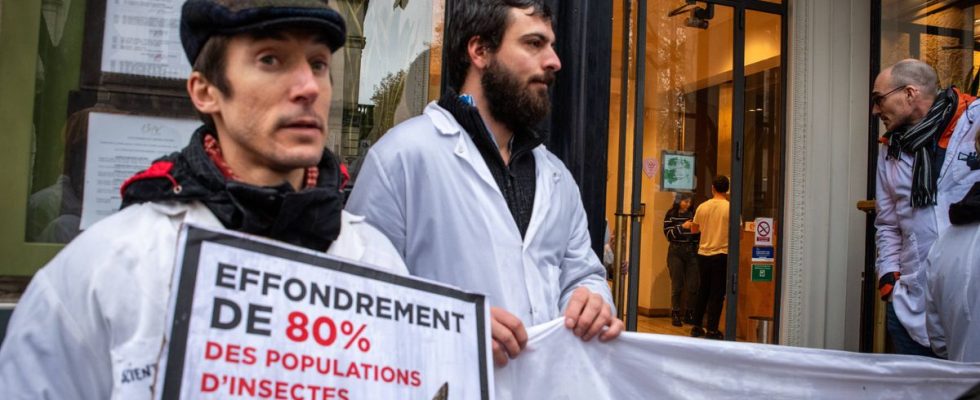A parliamentary commission of inquiry denounced Thursday “a collective failure” to reduce the use of pesticides, with a “form of public helplessness” despite serious repercussions on water quality and biodiversity.
The commission’s full report will not be published until next week, but the rapporteur, the socialist deputy Dominique Potier, presented a summary to the press.
“A collective failure to reduce our chemical footprint”
The document notes “a collective failure to reduce our chemical footprint” while there is “urgency to act”. “On at least a third of the national territory, pesticides and their metabolites [composants issus de leur dégradation] constitute a major threat to drinking water resources,” it is underlined.
At the same time, “the general impregnation of all environments [affecte] biodiversity” and endangers the services provided by nature, such as pollination.
Possible effects on human health
As for the effects on human health, research is “only in its infancy” but links or presumptions of links have been established between certain conditions and exposure to pesticides.
The report makes twenty-seven recommendations, including strengthening regulations aimed at preventing pollution of drinking water. The summary notes that “between 1980 and 2019, 4,300 catchments had to be closed due to pollution, mainly nitrates and pesticides”.
Effects on the cost of drinking water
She cites a 2020 government instruction according to which “due to this pollution, the estimated cost of treatment to make water drinkable is between 500 million and one billion euros per year”.
The means allocated to pollution prevention and political management are considered insufficient “in view of the phenomenal cost of repairing the impacts on environmental health and soil fertility”.
“It is an archetype of a failure of public policies due to lack of coherence” and “contradictory economic injunctions,” lamented Dominique Potier.
“A useful contribution to the public debate”
Contemporary agriculture is largely structured around the use of synthetic herbicides, insecticides and fungicides to increase production and ensure a certain level of yield.
The commission of inquiry, initiated by the Socialists and Allies group, began its work in July. Only RN deputies voted against the report, while LFI and two Renaissance abstained, indicated Dominique Potier.
The document is intended to be “a useful contribution to the public debate” at a time when an “Ecophyto 2030” plan is submitted for consultation. The first Ecophyto, launched in 2008, aimed to halve the use of pesticides (herbicides, insecticides, fungicides) in ten years, a goal that was constantly pushed back.
An unmanned vehicle
“Overall, we observe that the indicators [d’usages des pesticides] are at the same level as in 2009. The only progress observed is linked to the withdrawal of the most dangerous molecules” – withdrawals which are “not due to the dynamic Ecophyto ”, according to the summary.
The commission of inquiry said it was “struck by the feeling of a form of public helplessness”. “Ecophyto is like a vehicle driving on a road without radar, with a defective dashboard. An unmanned vehicle whose passengers would make the very destination a subject of controversy. »
With Ecophyto 2030, “the Prime Minister’s plan is better” but “insufficient in terms of the means implemented”, believes Dominique Potier.
Intense lobbying
Ecophyto 2030 is the subject of intense lobbying by agricultural and environmental organizations. The majority union FNSEA contests the objective of reducing the use of pesticides by 50% by 2030, invigorated by the failure in the European Parliament of legislation setting this objective.
The summary observes that “the cultural revolution which seemed to have taken place regarding the need to free ourselves from our dependence on phytosanitary products is being called into question in the context of tensions following the war in Ukraine and unfair competition on the market global” – not all countries are subject to the same constraints.

